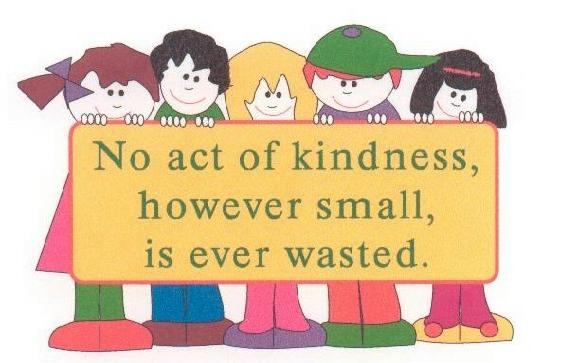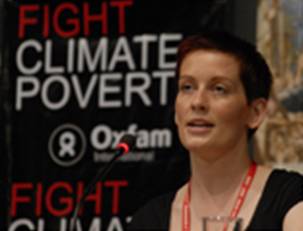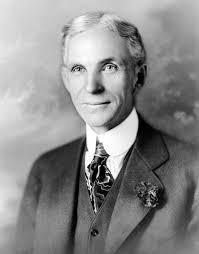Non-profit organisations
Most businesses that we will be looking at during the course operate in the private sector of the economy. That is, they are privately owned by individuals or shareholders and we assume that their main aim is to maximise profits.
However, there are many other types of business organisation that you may also come across during your course. One of these is a non-profit or not for profit organisation. In a way the name speaks for itself, but this doesn't mean that they don't make a profit; just that it is called a surplus.
They may have a surplus of income over expenditure, but this will be
ploughed back into the organisation not distrbuted to owners.
Non-profit organisations may be clubs, charities (NGOs), pressure
groups or other similar organisations that have some of the same aims
as a private business, but profit isn't one of them!
these is a non-profit or not for profit organisation. In a way the name speaks for itself, but this doesn't mean that they don't make a profit; just that it is called a surplus.
They may have a surplus of income over expenditure, but this will be
ploughed back into the organisation not distrbuted to owners.
Non-profit organisations may be clubs, charities (NGOs), pressure
groups or other similar organisations that have some of the same aims
as a private business, but profit isn't one of them!
Non-governmental organisations
Non-governmental organisations (NGO's for short) are organisations that may take part in business activity (as we have described it) and operate in the private sector, but their interests are more likely to be the development of the community and run for the benefit of others.
NGO's are non-profit organisations, which are independent from government. In the US they may be more commonly known as PVO's - private voluntary organisations.

The purpose of NGO's are hugely varied. They may be environmental organisations, voluntary groups, specific public-interest groups, scientific organisations or perhaps religious organisations. Examples include:
Why not browse around their web sites to see what they do? These are large international NGO's. Can you find examples of local and regional NGO's where you live?
For more detail, why not have a look at the Wikipedia article on NGO's. You can do that in the window below, or follow the previous link to open the article in a new window.
Charities
Charities are a form of non-profit organisation with the key function of fundraising to support a chosen cause or a group of individuals. Charities tend to be run along business lines, because they aim to maximise their donations and minimise costs.
individuals. Charities tend to be run along business lines, because they aim to maximise their donations and minimise costs.
They seek to educate and inform the public about the cause they are supporting and may act as a pressure group by lobbying government to increase resources allocated to underprivileged or excluded groups with the aim of improving social welfare. They may also seek to raise awareness of a social problem such as homelessness or medical issues such as AIDS.
Since charities do not sell in the conventional sense, they still use marketing to increase profile of their cause and to create brand awareness. Many charities use celebrity endorsement to raise their public profiles. Charities are often run by a combination of professional managers and full-time employees working alongside individual volunteers.
Charities need to be registered and restrictions may be placed on their operations. Governments impose obligations to report fully on their financial position. It is not unknown for bogus charities to be setup and for funds to end up in the pockets of unscrupulous founders.
Large companies may wish to associate themselves with charitable organisations to raise their ethical credentials. Donors to charities may receive tax allowances.

Oxfam
 Oxfam
works with more than 3,000 local partner organizations to assist people
living in poverty exercise their human rights, assert their dignity as
full citizens and take control of their lives.
Oxfam
works with more than 3,000 local partner organizations to assist people
living in poverty exercise their human rights, assert their dignity as
full citizens and take control of their lives.
Oxfam concentrates on three interlinked areas of work:
People need help in an emergency. Oxfam delivers aid, support and protection and helps communities develop the capacity to cope with future crises. Click on this link to see examples of current emergencies.
With the right support poor people can take control, solve their own problems, and rely on themselves. Oxfam funds long-term work to fight poverty in thousands of communities worldwide. Click on this link to see where Oxfam works.
Poverty isn't just about lack of resources. In a wealthy world it's about bad decisions made by powerful people. Oxfam campaigns hard, putting pressure on leaders for real lasting change.
- Define the terms:
- NGO
- Celebrity endorsement
- Produce a 500 - 750 word report to send to a potential corporate donor:
- Outlining Oxfam's purpose
- Providing examples of Oxfam's work
- Explaining how a donation to Oxfam can help a company's marketing and corporate image and provide competitive advantage.
